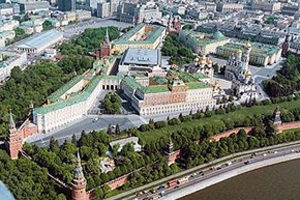Slogan ‘Russia for the Russians’ Correctly Understood Shouldn’t Frighten Anyone, Vinogradov Says

(Paul Goble – Window on Eurasia – Staunton, August 28, 2018 – windowoneurasia2.blogspot.com/2018/08/slogan-russia-for-russians-correctly.html)
Many have been upset that the share of Russians who support the slogan “Russia for the Russians” has almost doubled over the last year, Mikhail Vinogradov, the president of the Petersburg Politics Foundation, says. But there isn’t any harm in this, unlike slogans suggesting that “Russia is only for the Russians.”
“The share of ethnic Russians among the citizens of the country forms more than 75 percent (in 1992, they made up 81 percent of the total), and it would be strange if Russia were not for the Russians.” But Vinogradov performs a useful service by responding to the four major “counter-arguments” to his position (blog.newsru.com/article/28aug2018/lozung).
First, many have misused this slogan to suggest more than the words themselves indicate; but their inadequacy and lack of understanding has “no more sense than those who declare today’s Russian flag, the flag of Vlasov.”
Second, this slogan, he continues, is said to “offend the feelings of all non-Russians in Russia who are at the edge of genocide.” But that position would only make sense if all those who shout “Russia for the Russians” were in fact prepared to wipe out all the non-Russians. That is demonstrably not the case.
Third, ethnic nationalism is a dangerous thing – “it led to the disintegration of the USSR” – and, therefore, should not be encouraged by tolerance for such slogans.
And fourth, Vinogradov says, “Russians have no moral right to speak about their interests in a multi-national country. This was logical for the Soviet Union” where at the end the Russians formed “about 50 percent” of the population, but it isn’t now given that Russia is “more ethnically homogeneous.”
It is more to the point, the analyst suggests, to speak about “the unmotivated fear of Russians relative to their own statehood and – more broadly – to their status as a historical subject.”
Vinogradov’s argument, however, risks normalizing a term in which others will invest more negative meanings. Indeed, if the slogan “Russia for the Russians” is accepted by Russians, many non-Russians will view that as yet another threat to their position in the society and the state — and at least some of them will draw the conclusions the non-Russians did in 1991.
